QuestionI have a 10 gallon fish tank which is nicely decorated and has a overhead light. Do I keep the light on day and nite, or do I turn it down at nite, do the fish sleep? would they get traumatized by the change in lighting? I use a regular fluorescent light the low energy type.
What can I do about the snail population it seems to become overwhelming I know they keep the tank clean but can they harm the fish? How can I keep them from reproducing so fast? Is there any way to keep the tank clean any other way? and lastly: When I buy fish (usually inexpensive colorful fish) most of them seem to die within couple of days usually there are just couple which survive, how can I prevent that?
Any comments are appreciated.
thanks
AnswerDear Lety,
Thank you for sharing your fish problems with me. I'm writing a book about fish care, or maybe a pamphlet, booklet, or whatever it turns into. This is what I have so far. I just added two new topics you suggested. Read this and tell me if it answers your questions. We can discuss your specific issues further. I will appreciate your feedback.
Sincerely,
Nori
1. The leading cause of fish loss is overfeeding. If your water is cloudy or your filter gets clogged, you are overfeeding. Fish are like little fairies who don't need to eat much. Two or three flakes per day per fish should be enough. If they grow larger, you can increase it a little. If you put food in and the food touches the bottom, you are over feeding. A hungry fish would never let food touch the bottom. Fish are terrible gluttons and will eat whatever you give them. They will act hungry all the time, but they really just want attention.
The best way to feed them is first get their attention so they come to the top. Then drop one flake at a time until each fish has and a few bites. That's it for the day. You can feed them every day, but a box of fish flakes should last forever.
Another thing that might contaminate the water is aquarium plants. My experience with live plants was that the fish try to eat them, they die, rot, and pollute the water. I prefer silk or plastic plants. Also, change those out when they become difficult to keep clean.
2. Cleaning the tank. The biggest mistake people make is to remove too much water at the time of cleaning. Fish don't do well in fresh water. They actually need an ecosystem of natural bacteria to protect their coat, help them breathe, and help break down fish waste in the tank. There is a chemical available in aquarium stores called "Cycle" that provides the biology to make fresh water more like the natural habitat they need. Keep the bottle in the refrigerator and follow the directions on the box.
Clean the tank once a week or every two weeks. First scrub down the inside glass with a small sponge used only for the aquarium. Let the water settle.
Buy a fish syphon vacuum cleaner at your fish store and run it around the bottom of the tank in the gravel to remove waste material. You should be able to accomplish this by only removing 10-20% of the water. When you fill the tank, use only bottled water. If you use a heater (shouldn't be necessary with gold fish), make sure the water is the same temperature as the rest of the water in the tank. (If you don't use a heater and the tank is room temperature, use bottled water that is room temperature.) Add the proper amount of Cycle.
4. Lighting. Set the tank near a window, but not in direct sunlight. Direct sun is not good for the fish and will make the tank grow algae. If there is no natural lighting, use the lamp in the tank cover. Leave it on five or six hours, or whatever your aquarium store recommends.
5. Unwanted visitors. Sometimes when you bring home a new fish, the water that comes with the fish may contain snails. Snails multiply rapidly. If your tank is very large (30 or more gallons), get a large plecto and he will eat the snails. Otherwise, you can do a snail sacrifice. That is, take them out of the tank and get rid of them. It's horrible to think of, but the alternative is to allow them to take over your tank. You might want to keep a few snails. The fact that snails can thrive in your tank means the tank is healthy.
3. Illness. If your fish get sick, do not buy medicine at the fish store. Usually fish get sick because of over feeding. Adding all sorts of medicine will not help. The only thing I've found that will help is the ordinary Stress Coat (or similar product) that you get at the aquarium store. It's basically just aloe vera and it helps protect the fish's silky coating. Never touch fish or pick them up. Your hand will wear away their coating. If you must pick up a fish for some reason, add extra Stress Coat to the water. The fish at the place where I work came down with terrible Ick. I thought he was a gonner, but I made very strict rules about overfeeding and changed his tank more frequently, adding Cycle every time. I called him up to the top and dumped a few drops of Stress Coat directly onto his head where the Ick was worst. After three treatments like that he completely recovered.

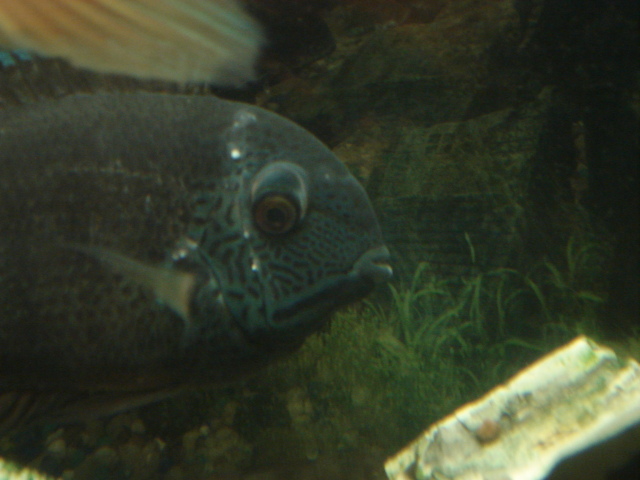 Sick Severum Cichlid
QuestionSick Severum
QUESTION: Hi, I hope you ca
Sick Severum Cichlid
QuestionSick Severum
QUESTION: Hi, I hope you ca
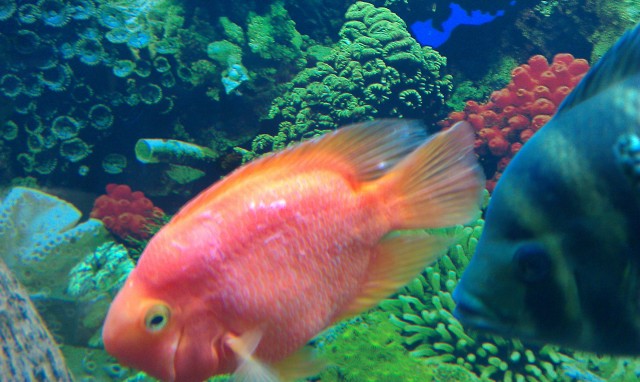 Parrot disease
Question
scales peeling off
I have a 115 gallon tank wi
Parrot disease
Question
scales peeling off
I have a 115 gallon tank wi
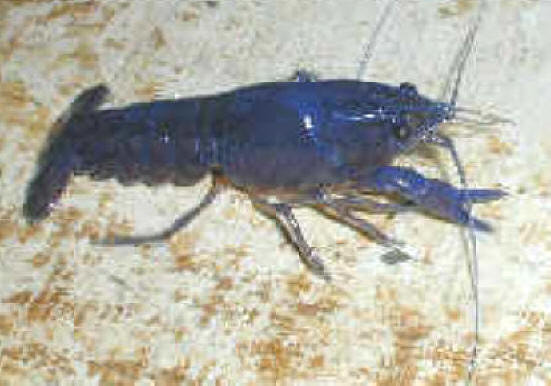 Blue lobster
Questionblue lobster
QUESTION: Hi Richard,
Can a
Blue lobster
Questionblue lobster
QUESTION: Hi Richard,
Can a
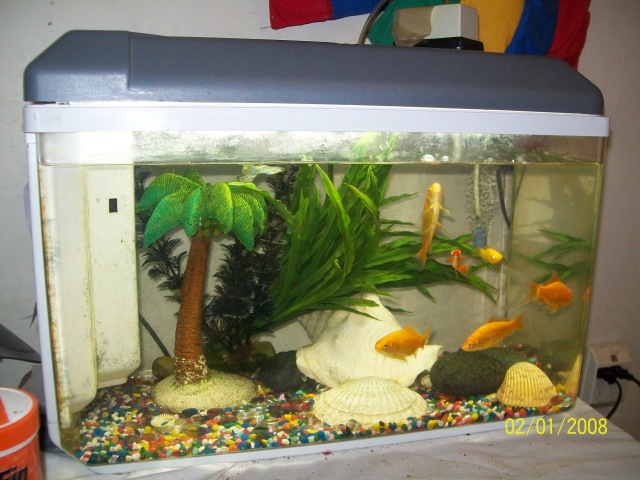 Whats a water hyacinth
Question
Whole tank
Renee, you answered my last questio
Whats a water hyacinth
Question
Whole tank
Renee, you answered my last questio
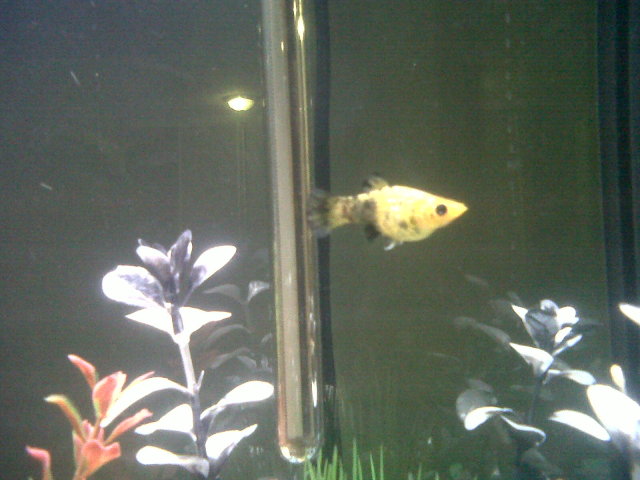 Birth of Molly Fish Babies????
Question
Pregnant Molly
Hi!! This is my fi
Birth of Molly Fish Babies????
Question
Pregnant Molly
Hi!! This is my fi